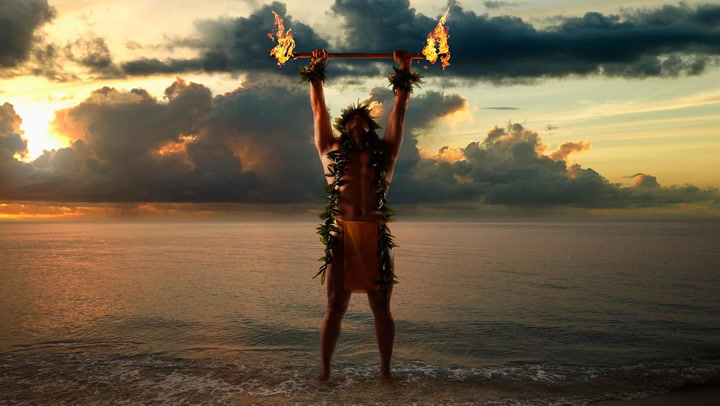The Hawaiian Islands have always held a magical allure, drawing travelers in search of warm Pacific breezes and an escape from the daily grind. These days, thanks to a slew of new hotel openings and flight options, travel to Hawaii is more popular than ever. While that’s generally beneficial for the state’s economy, it also means that we, as conscious travelers, should be extra mindful of the effects of overtourism. This includes making an effort to keep the land pristine and better understanding Hawaiian culture—a beneficial practice for both visitors and locals alike.
Fortunately, several hotels and businesses in Hawaii have recently hired cultural practitioners—experts in their field—whose job is to educate visitors and staff members about these crucial concepts. Here, a few of them share the local traditions and values they want you to know before your next trip.
1. Hawaii has been home to the Hawaiian people for over a thousand years.
Native Hawaiians have lived in the islands since Polynesians first sailed to Hawaii and settled there in the 5th century AD. While it may seem obvious, many cultural practitioners believe it remains a necessary reminder. “Hawaiians feel incredibly connected to our ancestors, and it’s important for visitors to keep that in mind,” explains Kahulu De Santos, a cultural practitioner at Aulani, a Disney Resort & Spa on Oahu. “Entering someone’s home with this knowledge changes the way you approach the space.”
2. Hawaiians are guided by a concept called “aloha aina,” which means “a love of the land.”
At its core is the belief that every aspect of nature—every tree, plant, and animal—has a deity connected to it, according to Anela Evans, the cultural practitioner at the Four Seasons Resort Lanai. Ancient Hawaiians worshipped these spirits daily, allowing them to live sustainably for over a thousand years in the most isolated landmass on Earth. Consequently, aloha aina embodies a soulful love for the land that supports life.
3. Ho’okipa, or hospitality, is a cornerstone of Hawaiian culture.
Ho’okipa emerged out of necessity. When ancient Hawaiians needed to traverse an island or travel to another, it was customary for the host to reach out to ensure the visitor found safe accommodation and sustenance. “They developed a system of trust and hospitality where the visitor was expected to respect the home that welcomed them,” explains Manakō Tanaka, manager of the O’ahu Visitors Bureau and cultural lecturer at the University of Hawaii at Manoa.
Today, Hawaiians still expect visitors to follow the principles of ho’okipa. However, social media exposure has led more visitors to trespass on “kapu” grounds—sacred areas that should remain undisturbed. “To an outsider, it might look like nothing more than a collection of rocks, but it’s important to leave the place as is, without moving any stones,” advises De Santos.
4. Lei are sacred—so treat them with respect.
The lei you receive at check-in carries more significance than you might think. In ancient culture, Hawaiian hula dancers crafted lei from various plants and flowers to wear during performances. Each plant represented a deity, and wearing a lei was a means of becoming one with these spirits. “Thus, hula dancers were elevated to a higher power,” explains Evans.
Although traditional beliefs linger among hula dancers today, lei have evolved into welcome gifts within the tourism sector. Nevertheless, Hawaiians still encourage visitors to treasure lei as a special gift. Tanaka advises, “If the lei is still good, consider taking it home. If it’s not, please leave it nicely placed on a table instead of discarding it.”
5. Whenever possible, attempt to say the Hawaiian name of a location instead of its English counterpart.
In 1896, an American law prohibited the use or teaching of the Hawaiian language in schools. This law persisted for decades, and although there’s a movement to revitalize the language, many locations in Hawaii are still commonly referred to by their English nicknames. For instance, Palauea Beach in Maui is often called White Rock.
The traditional Hawaiian names hold sacred meaning, often telling the stories of those places. “When you refer to a location by a name given less than 50 years ago, it can be offensive as it diminishes the honor tied to it,” explains Evans. This situation reflects similar experiences when immigrants to the U.S. had their names altered to suit American pronunciation.
6. Never turn your back on the ocean.
“Every Hawaiian knows that,” cautions De Santos. However, it’s critical to emphasize, especially following recent tourist tragedies due to unexpected waves. Hawaiians deeply understand that the ocean—and nature, in general—is a spiritual force that should always be treated with respect. “Nature is powerful, so let aloha be your guide, as it consistently shows the way.”





